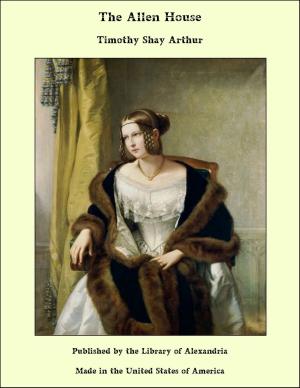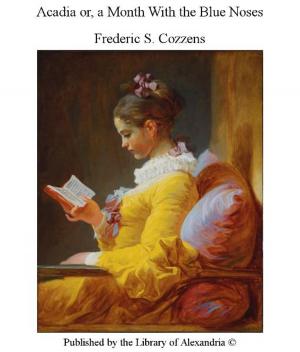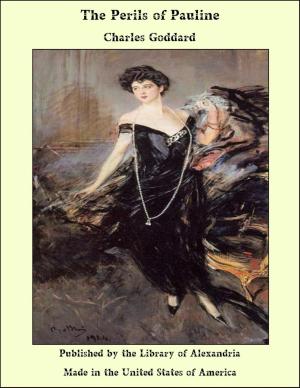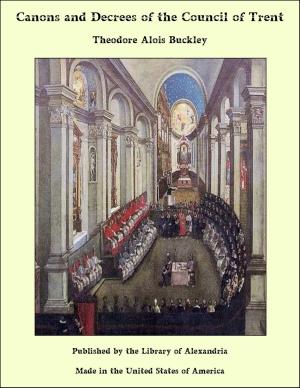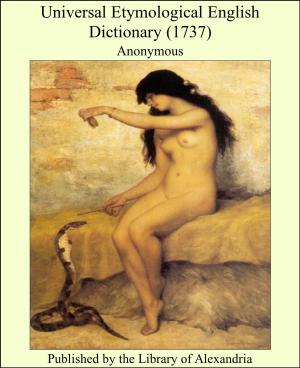| Author: | Anna Theresa Sadlier | ISBN: | 9781465603418 |
| Publisher: | Library of Alexandria | Publication: | March 8, 2015 |
| Imprint: | Language: | English |
| Author: | Anna Theresa Sadlier |
| ISBN: | 9781465603418 |
| Publisher: | Library of Alexandria |
| Publication: | March 8, 2015 |
| Imprint: | |
| Language: | English |
Arabella stood thoughtfully there on that ridge of land, where the brown earth was studded with daisies and mulleins, the common children of the soil. The sky was a clear gold at the horizon, and Arabella, gazing thereon, pondered on something she had just heard. She had suddenly become an heiress. She looked down on her plain, brown frock, at her coarse shoes, and at her hands roughened by work about the house. She had been the orphan, the charity-child, and now —Her gaze slowly turned from the golden skies to the house, wherein she had spent her childish years. It was large, barn-like, of a dull, cheerless brown, altogether bare and uninviting. The glint of the sun shone upon the attic window of the room wherein she had been lodged. It was the one spot which she regarded with affection. It represented home. Her eyes rested there now, wistfully, with something of longing and of affection. As she stood thus, she heard a voice calling and went slowly towards the house. There was Mrs. Christie waiting for her with a new expression upon her rugged face and a look in the dull eyes as if a light had been suddenly kindled there. “Arabella,” she called, “come in and eat your dinner. We’ll have to go to the city this afternoon.” Arabella glanced at her quickly. Her breath came fast. She had never been to the city; she had always longed painfully to go, since to her it was a wonderland. Yet she felt a sudden catch in her throat. She thought, perhaps, she was going forever, and she remembered vividly, painfully, her familiar little room, bare and miserable though it was, her one friend, a woolly, brown-haired dog, and the woods and fields, whither she went in her few leisure hours. She asked, therefore, with something of a gasp in her voice “Not — not for always?”
Arabella stood thoughtfully there on that ridge of land, where the brown earth was studded with daisies and mulleins, the common children of the soil. The sky was a clear gold at the horizon, and Arabella, gazing thereon, pondered on something she had just heard. She had suddenly become an heiress. She looked down on her plain, brown frock, at her coarse shoes, and at her hands roughened by work about the house. She had been the orphan, the charity-child, and now —Her gaze slowly turned from the golden skies to the house, wherein she had spent her childish years. It was large, barn-like, of a dull, cheerless brown, altogether bare and uninviting. The glint of the sun shone upon the attic window of the room wherein she had been lodged. It was the one spot which she regarded with affection. It represented home. Her eyes rested there now, wistfully, with something of longing and of affection. As she stood thus, she heard a voice calling and went slowly towards the house. There was Mrs. Christie waiting for her with a new expression upon her rugged face and a look in the dull eyes as if a light had been suddenly kindled there. “Arabella,” she called, “come in and eat your dinner. We’ll have to go to the city this afternoon.” Arabella glanced at her quickly. Her breath came fast. She had never been to the city; she had always longed painfully to go, since to her it was a wonderland. Yet she felt a sudden catch in her throat. She thought, perhaps, she was going forever, and she remembered vividly, painfully, her familiar little room, bare and miserable though it was, her one friend, a woolly, brown-haired dog, and the woods and fields, whither she went in her few leisure hours. She asked, therefore, with something of a gasp in her voice “Not — not for always?”


